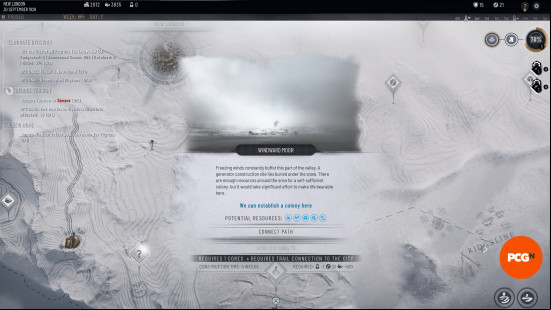How do you start a Frostpunk 2 colony? Frostpunk is one of the best strategy games around, and the sequel takes everything up a notch, expanding the difficult, the world, and your interactions with your colonists. Due to the larger area, you can even explore nearby regions and start brand-new colonies as you find a way towards a new world.
As you unlock the Frostland and gather more Frostpunk 2 colony.

How to build a new Frostpunk 2 colony
As you send Frostland teams out to explore and uncover more of the surrounding area, some areas you unlock will open an 'establish colony' option alongside another choice. If you want to expand, you need to have sufficient materials – and you can't change your mind once you settle in.
By choosing the 'establish colony' option in areas like Frostpunk 2 tips guide, you can share resources between them.
Of course, the draw of these new areas is that they come with plenty of new resources to extract, but you can't always guarantee what you're going to get until you get there.
To colonize a new area, you need to use an amount of resources first, usually a combination of Frostpunk 2 Heatstamps, cores, and prefabs, so also try to ensure that doing so won't leave New London short.
Finally, for colonists to reach the new area, you must build Frostpunk 2 trails between New London and your new location. This again costs resources – but surely you'll reap them back in no time…
Now you know how to build a new colony in Frostpunk 2, you can expand outside of New London, either in peace or to exile troublesome factions. None of these new factions will have their own strategy game, but those decisions will naturally affect all colonies.
